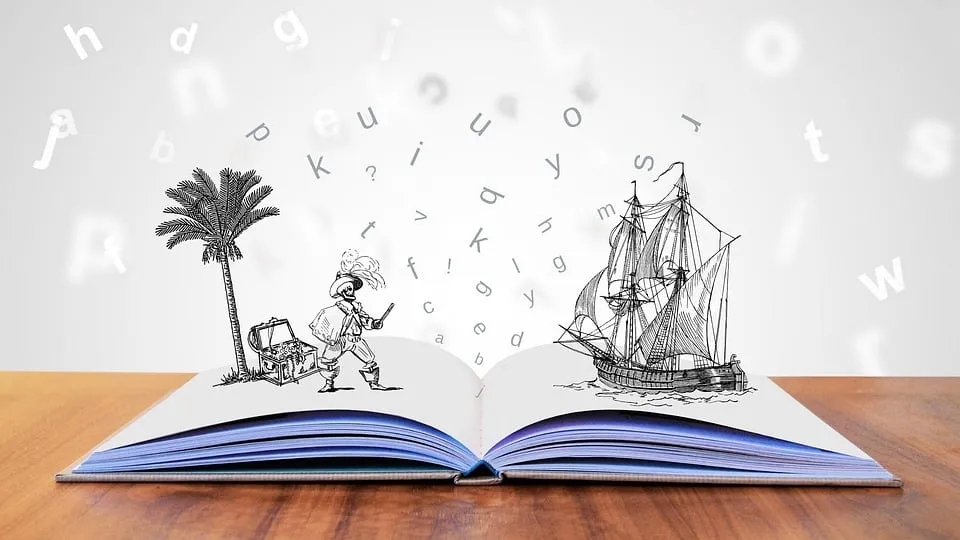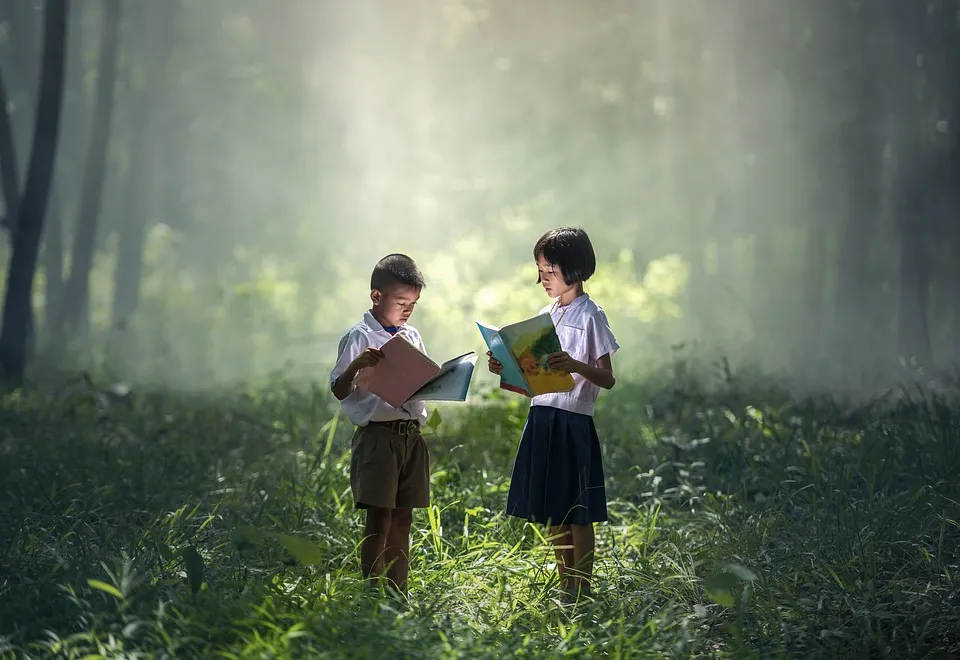Those who think they are protecting the child when they write or speak down to them only condemn the child to cognitive and emotional isolationism.
In the world of literature, the debate about what constitutes children’s literature and what not, or whether children's literature should be considered Literature at all is usually settled around the issues of language and purpose: How is the story written? How is language used? Does it have an overt didactic purpose?
Creative and challenging language in a good children's book should be the bridge that will connect the otherwise isolated child to the world of imagination, but also to the real world they are supposed to adapt to and "conquer."
As a ghost writer, who sometimes edits what others have written, every time I am asked to edit a text solely on the basis of vocabulary because the "author" considers that it is beyond the child's reach, too difficult, etc. I feel as if I am being forced to put someone behind bars.
Even though there are obvious developmental factors that make a three-year-old unsuitable to read, say, Harry Potter or The Chronicles of Narnia, to restrict a text to the intended audience's alleged linguistic corpus, is to limit the child's potential. Children can infer meaning from context, develop their linguistic curiosity, and be exposed to a world beyond the confines of what adults consider safe when they are read challenging texts. If the text is well written, if the story is engaging, and if the reading is well performed, vocabulary is never an issue.
One wrong assumption from these conservative "writers" who demand "their" books to be written in a language that is accessible to the child (especially small children who can't still read) is that the act of reading is a mechanical passive one. Even though we may find really bad readers, it is doubtful that a parent or care-giver will not perform what they read to children.
Reading, especially literature, is a performance.
In that act of performing the story on the pages, the reader acts, mimics, exaggerates, makes noises and voices and usually interact with the audience in parenthetical pauses to make sure they are following, to pose questions, to anticipate events, or to clarify meaning.
Thus, there is no need to change a word like "applaud" and substitute it for "clap" mostly because the child allegedly knows "clap" only. The reader will most likely clap when they read "applaud" and the child will surely understand next time they hear the word, even without the performance of it.
Like trees, children need room to grow. Linguistic limitations or dosifications may hinder children's cognitive development during their most important years (0-3).
Most children like to be challenged; they are not afraid of big books or big words. They may be intrigued by them, which is a good thing. It is our duty as adults, parents, librarians, or teachers, to expose them to good literature, written in the most creative language possible, about the widest variety of topics possible (without having to harm their sensibility and their fragile psychological stage, of course).
Children are usually exposed to language in its entirety when they watch television or movies (unless they are watching Teletubbies). They do not need overprotective or didactic limitations in the literature that they read or are read. They will decide, on their own, what entertains them and what does not. They will grasp what they can and ignore what they don’t get.
It worries me that this generation of children, burdened already with the overwhelming technological overstimulation and all the political correctness that is already distorting or sugar-coating world views, will also be under-stimulated by the one source of knowledge and entertainment they should be getting the most from. Storytelling in the form of books worked very well for centuries. Whatever comes after, whatever technological gadget replaces it, should at least provide children with the minimum linguistic stimuli to awaken artistic, social, and emotional reactions to make children ask for more and better stories.
Thanks for reading





